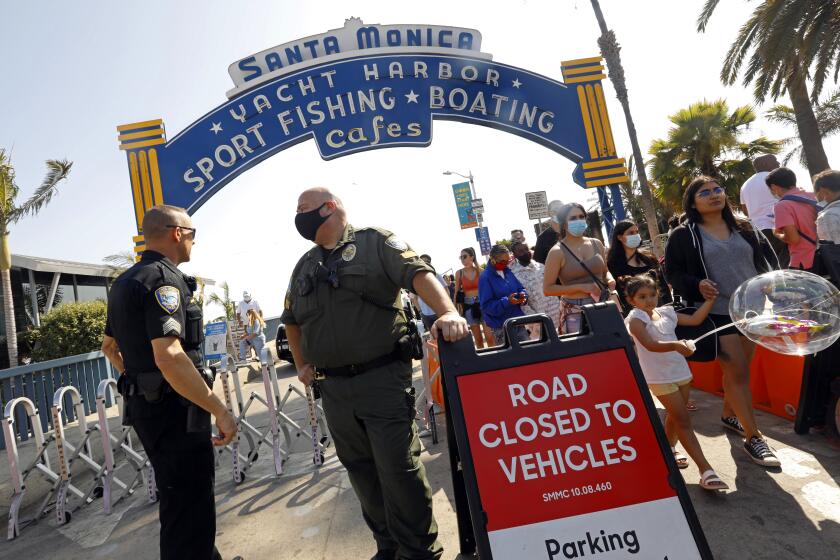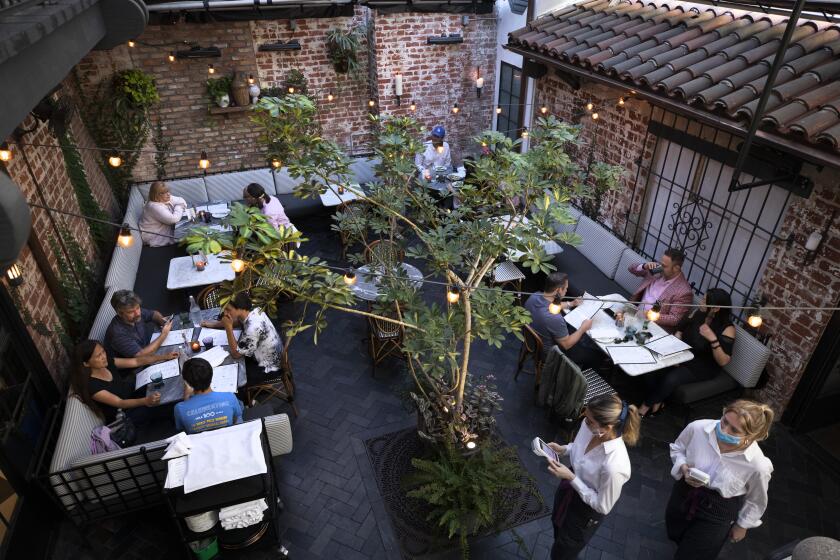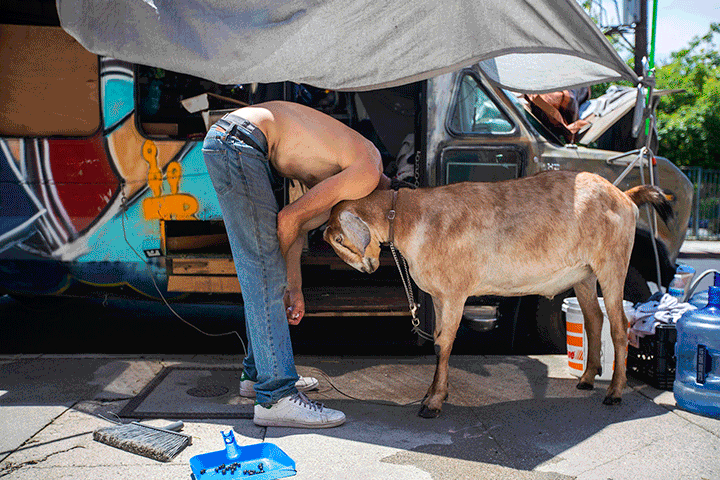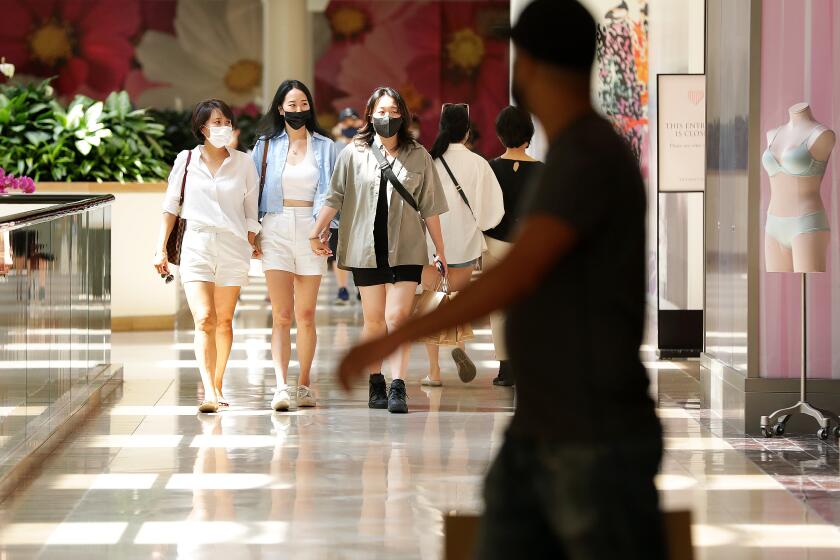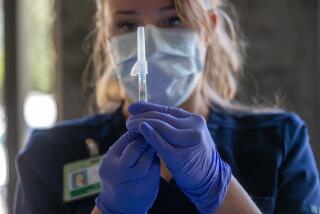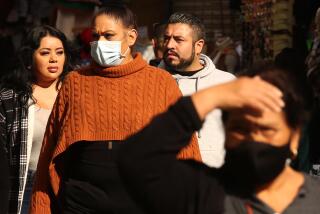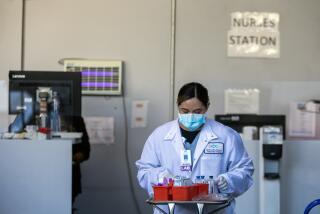California loosens mask rules for vaccinated employees
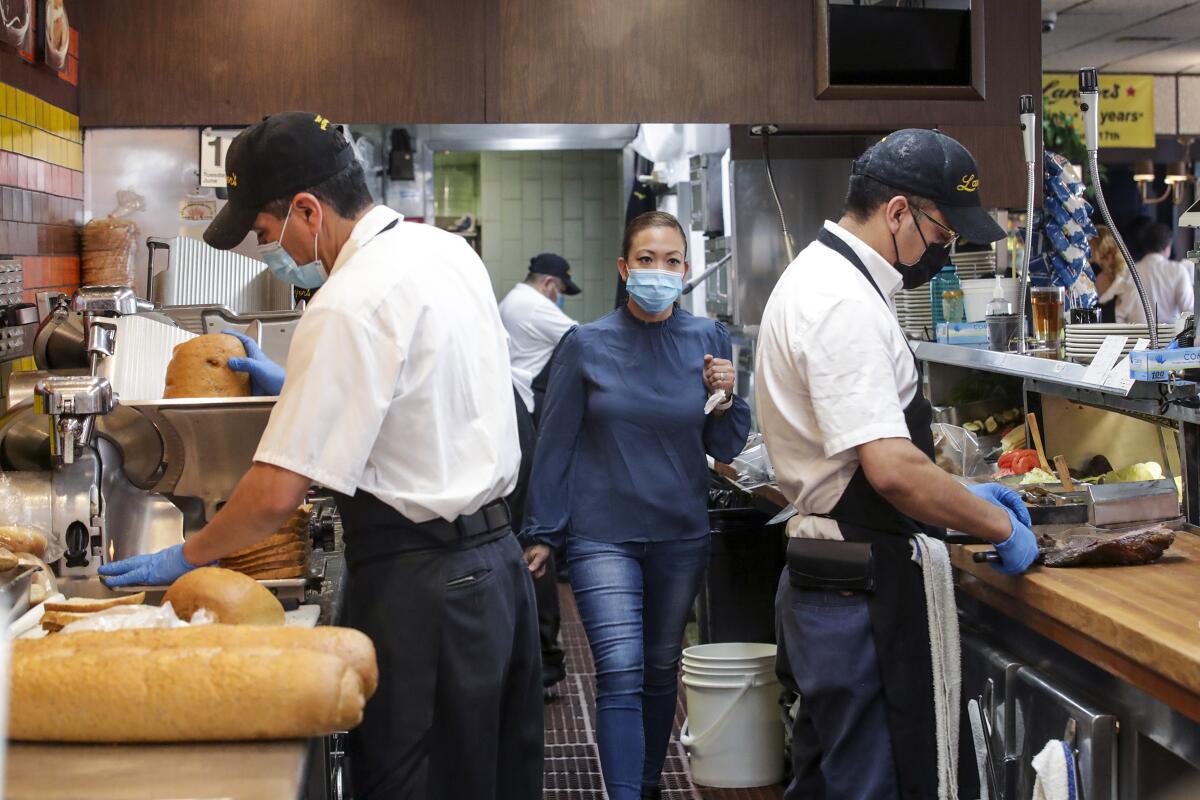
Californiaâs circuitous journey to relaxing coronavirus-related workplace safety rules finally reached its destination Thursday, when the state moved to end physical distancing requirements for all workers and allow most fully vaccinated employees in many workplaces to stop wearing masks.
The 5-1 decision from the Occupational Safety and Health Standards Board followed more than two hours of public comment, during which a number of business groups urged board members to go even further and eliminate any additional pandemic-related restrictions on workplaces, while labor representatives said itâs still too early to pull back on the protective measures that have long guided the stateâs COVID-19 response.
âWhile I understand the proposal in front of us today is extremely controversial and inconvenient, now I donât think is the time to let our guard down,â board member David Harrison said. âWe need to do everything reasonable, and I highlight reasonable ... within our power to protect employees in California.â
Normally, it would take at least 10 days for any board-advanced standards to go into effect, as they are subject to review by the state Office of Administrative Law. But Gov. Gavin Newsom signed an executive order almost immediately after the decision to allow the revisions to take effect without the typical waiting period.
California poised to drop mask rules for vaccinated workers and distancing rules for everyone at workplaces.
Workplaces still will be required to provide masks to workers who are not fully vaccinated against COVID-19 and make sure they wear the face coverings while indoors or in shared workplace vehicles or employer-provided transportation. Employers also will have to provide a respirator such as an N95 mask if an employee who is not yet fully vaccinated requests one.
Unvaccinated workers generally will be able to take off their masks indoors only if theyâre alone or eating or drinking.
The approved standards also do away with the requirement for solid, cleanable partitions designed to reduce viral transmission, such as the plastic barriers that separate customers and cashiers.
The revision âaligns with state guidelines; it addresses a number of stakeholder concerns about burdensomeness while still providing robust protection to employees,â Eric Berg, deputy chief of the California Division of Occupational Safety and Health, or Cal/OSHA, said at Thursdayâs meeting.
Employers have to document the vaccination status of employees if theyâre going to go without face coverings indoors, he added, but they donât have to retain copies of vaccine cards, and employees can also self-attest to their inoculation status.
Now that California has eased its COVID rules, many customers at stores, restaurants and hotels want things to be normal. Hereâs what workers think.
The lone board vote against the concept was member Laura Stock, who said she was concerned it âgoes too far in rolling back essential protections while the pandemic is still going on.â
She took particular issue with the idea of employees attesting to their vaccination status.
âWe are now putting most of our eggs in a basket around vaccines, and if vaccines [are] our primary strategy here, it is critical to ensure and verify who is vaccinated and who isnât,â she said.
The new standards, which apply to most workplaces, are notably less restrictive than a previous set the board voted on â which was rejected, advanced, then ultimately rescinded before taking effect.
Under that earlier proposal, fully vaccinated people would still have been required to mask up in an indoor workplace if just one person who was unvaccinated or whose vaccination status was unknown entered the room.
As of Tuesday, restrictions were lifted at most businesses, and Californians fully vaccinated for COVID-19 could go without masks in most settings.
Starting Tuesday, coronavirus-related capacity restrictions and physical distancing requirements were lifted for the general public at almost all businesses and other institutions. Residents who are fully vaccinated against COVID-19 can now go without masks in most nonwork situations.
Unvaccinated individuals, however, are still required to mask up in public indoor settings. And everyone, regardless of inoculation status, has to wear a face covering while in transit hubs or taking public transportation; in healthcare settings and long-term-care facilities; indoors at K-12 schools, child-care facilities or other youth settings; in homeless shelters, emergency shelters and cooling centers; and in correctional facilities and detention centers.
The specter of Californiaâs reopening hung over the boardâs previous deliberations on what additional rules, if any, to keep in place for worksites. Many individuals and business groups said that any workplace standards should dovetail with wider state regulations, as it no longer made sense to impose more restrictions on a âfullyâ reopened economy.
California fully reopened Tuesday, so residents who are fully vaccinated were able to go into many public places without masks, but many kept them on.
However, some said at Thursdayâs meeting that even relaxed masking rules were a non-starter â one that would foment hostility toward those who are unvaccinated and effectively force people to wear a âscarlet letterâ advertising their private medical decisions.
Others went so far as to decry any face-covering requirement as tantamount to discrimination or segregation and said the rules made no meaningful accommodation for those who had not been vaccinated but had natural immunity from a previous coronavirus infection.
Business representatives also said any requirement to provide N95 masks would be unduly onerous and objected to the idea that they should be required to confirm their employeesâ vaccination status or enforce the rules that come with that determination.
âWe trust our employees every day, including not coming to work with COVID-19 symptoms,â said Helen Cleary, director of the Phylmar Regulatory Roundtable, a business coalition. âWe need to respect decisions not to get vaccinated, trust that people understand the risk and acknowledge natural immunity.â
Some workers and representatives from labor groups, on the other hand, warned that the danger posed by COVID-19 has not yet passed and that rules that might make sense for the public at large canât simply be applied wholesale to worksites, where employees often cluster in close quarters for extended periods of time.
Mitch Steiger, senior legislative advocate for the California Labor Federation, said largely removing the mask mandate was essentially pretending âthat the pandemic is overâ at a time when many Californians have yet to be fully vaccinated and worrisome coronavirus variants are circulating.
âThereâs really no way to escape the fact that so drastically weakening the face-covering requirements in the standard ⌠will sicken many and likely kill some workers, particularly in rural areas, and especially among underserved communities that are more likely to remain unvaccinated,â he said.
During an event in Bakersfield on Wednesday, Newsom noted that concerns remained âaround self-attestation and record-keeping related to employers with employees that are not vaccinated,â as well as the supply of N95s, which he said the state can provide.
âThis is not the last act,â he said. âI want to continue to work with industries, large and small, to work through some of these issues in real time.â
Times staff writer Rong-Gong Lin II contributed to this report.
More to Read
Sign up for Essential California
The most important California stories and recommendations in your inbox every morning.
You may occasionally receive promotional content from the Los Angeles Times.
